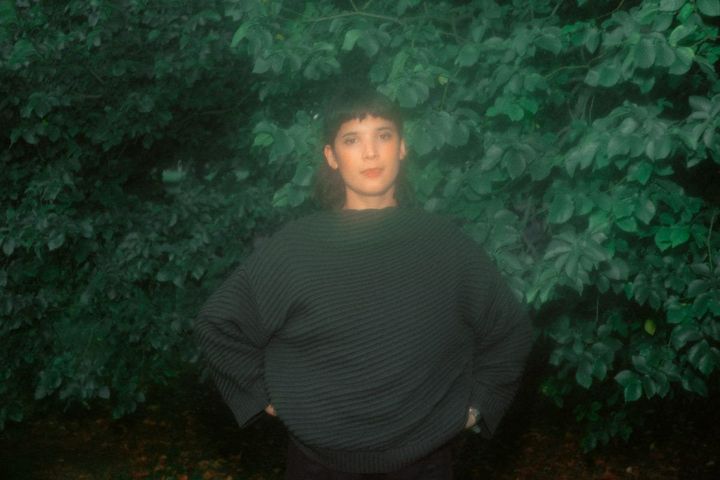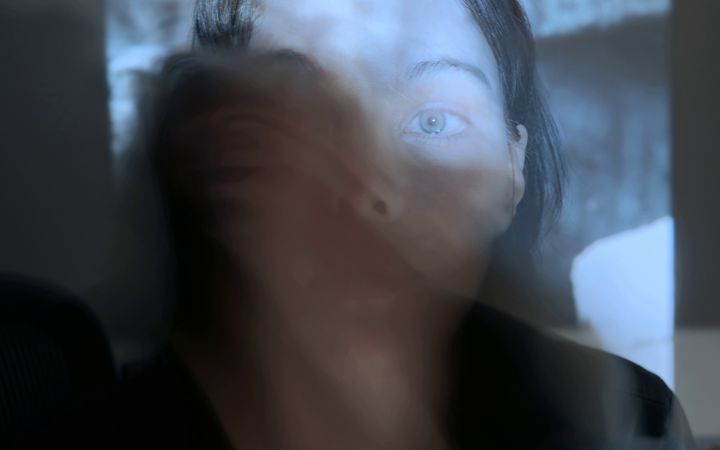Interview: Andrew Tuttle

15 seconds into Fantasy League – the latest album by Australian composer Andrew Tuttle – a banjo springs into the frame, dancing jubilantly atop a slow-swelling drone, swaying over the synthesiser haze like plant life indulging a summer breeze. The record is full of rich visions like this; intersections of moist electronics and acoustic instrumentation, blurry waterfalls of digital arpeggio and simulated birdsong. I was keen to ask Tuttle about the processes that brought such pretty synaesthesic experiences to be. Below, we discuss the analogy between music composition and partaking in a fantasy sports league, the allure of major keys and Tuttle’s upcoming residency at EMS in Stockholm.
I’ve never heard music being analogised to the experience of partaking in a fantasy league. The premise of asserting oneself within fantasy could be likened to numerous different experiences: immersion within a soap opera for example, or allowing one’s instincts to be hijacked by the fictional worlds of horror cinema…what is it about the fantasy league that makes it the most appropriate analogy for you?
There’s a bit of a loose correlation in my mind between doing an online fantasy league for a sport with creating an album as a solo musician with a niche potential audience. Doing fantasy leagues is really fun, but I’m acutely aware that it is something that is detached from reality on pretty much any level. There’s also a certain sense of isolation in creating recordings for and workshopping the kind of music that I make, that is fairly insular when being created. Fortunately though my track record of completing albums is much better than that of sticking it out with fantasy leagues!
The presence of the banjo and guitar on this record is wonderful; somehow they manage to embed themselves inside the electronic pieces and leap out of them simultaneously. For how long have you been using banjo and guitar in this way, and do you feel as though you’re becoming more adept at placing acoustic instrumentation amidst electronic texture?
Prior to performing under my own name, from 2004-2013 I performed under the moniker Anonymeye. For much of this time I incorporated acoustic guitar and electronics and for a few years now I’ve added banjo to the mix as well. I think even over the last 18 months I’ve felt more comfortable and confident in both my performances and recordings.
It’s a very visual record for me. Some of the sounds are sculpted with such depth and distinct shape that I can see them vividly in my mind’s eye. Does this visual side of music play any role in the creation/listening process for you?
The visual side of things is definitely secondary, but there is an element there. My daily walk to and from work has a nice mixture between leafy and urbanised areas, which probably impacts upon the music I make. One day I need to learn how to do video editing to hopefully merge it all together!
I understand that much of the record was put together in your home studio. Do you enjoy composing from home? Does it ever make it difficult to suspend the reality of home life in order to immerse yourself in the fantasy of composition?
I don’t mind writing and recording at home, as I’m fortunate to live in a nice airy house with my girlfriend that has a spare studio room. My instinct is usually to hang out or to relax on the couch rather than immersing myself in the studio, particularly after working. I’ve generally found it really useful to at least complete part of an album in another location, whether it be as part of a residency or even in hotels on tour. That then gives me the initial impetus to finish off something at home. On the other side of things, I generally prefer to rehearse and prepare ideas for shows and tours in the home studio rather than in a rehearsal room, as that kind of environment isn’t necessarily conducive to jamming out ideas and working with subtle and quiet tons.
The record is full of these beautiful bubbling major keys. Do you tend to gravitate toward this happier, more tranquil sense of tonality, or is there any reason that this is particularly prominent on Fantasy League?
I do tend to gravitate towards major keys. I do think it is particularly prominent on Fantasy League, which reflects the really positive environment I created it in. I started work on the album upon moving into a lovely new house in Brisbane with enough spare for a dedicated studio room, which has a lot of natural light. I don’t necessarily work particularly quickly on recordings, but the house always brightens my day, which I think is reflected in these recordings.
Have you tried to bring the Fantasy League material to the live environment? How easily does this music carry into the realm of performance?
Live improvised performances with acoustic instrumentation, live looping and electronics can be quite challenging! There’s always a ‘Jenga’-like element to my performances, depending on a whole variety of circumstances; but I’d like to think the risk is worth the reward for myself and the audience. There’s no triggered sounds in my current set, but a mixture of compositions and improvisations keep it pretty fresh for each show. The current set I’ve been performing contains some motifs/ideas from Fantasy League which I’ll expand upon, some even newer ideas and also a couple of my favourite works from my back catalogue under my own name and my previous moniker Anonymeye.
One of pieces is called “Injury Crisis”. In the world of fantasy sports, what’s one of those?
In this instance, the “injury crisis” would have one or more “players” out of the competition for a while, which would impact on the squad/budget that you have. Of course it is way less consequential than the injury crisis for the real player (or their team), so it is possibly more of an injury inconvenience. That sounds less dramatic though!
What records are you listening to presently?
There are always so many new albums to listen to that it is hard to keep up! In no particular order, I’ve recently been enjoying new albums from Matmos, Curse ov Dialect, Loretta Lynn, Violent Soho, Danny Paul Grody, Ryley Walker, Glenn Jones, M. Geddes Gengras, El Guncho, Francis Plagne and These Guy. I felt like I was slipping behind on new music last year, so am making a conscious effort this year. I’m sure I’m missing some too. On my walk to and from work I prefer to listen to podcasts, mostly from the ABC, BBC and Deutsche Welle but I’m looking forward to re-listening to La Trobe University’s Emperors of Rome series. For good measure, I’ve also been regularly playing my Eurovision and Euro-ish Spotify playlist in preparation for this year’s competition.
I understand that you’re soon to be conducting a residency at EMS in Stockholm. How much preparation/research are you doing for that?
Between working and trip preparation, probably not as much as I’d like to, to be honest. It is still unseasonably and unreasonably warm in Brisbane, it is still 20-30ºC each day in what is meant to be autumn and I don’t have air-conditioning. So naps kind of get in the way of ideas. That said, I’ve got some pretty solid ideas on what I want to do, but I’ll spend some time before I head over mapping out an approximate day by day strategy. I’ll also allow myself quite a bit of “free” time to see what happens as well. There’s an album idea I really want to create, but the freedom of a residency means that something else entirely may occur.
Do you find that composing away from your home studio changes the way in which you approach composition?
Definitely! I’ve found that even if I’m not as prepared as I’d like to be for residencies – as I mentioned earlier, life can get in the way – when I arrive in a new location, I’m really keen to focus on creating new ideas. When I’m creating music at home, it isn’t necessarily for an album, so the improvisations happen first and any loose themes definitely occur afterwards. When recording externally, I am inspired to both create for my own purposes and also for a bit of ‘show and tell’ for whoever my hosts may be. In this instance, EMS is such an iconic location that I really want to create something that reflects the history of the studio and also my own creative methods.
Other than this residency, what’s coming up for you?
Immediately prior to the residency, I’ll be doing a short run of shows in Lausanne, London, Berlin, Basel and Milan in April/May which I’m really looking forward to. It’ll be my first trip to Europe in eight years and my first shows there under my own name, so I can’t wait to share my new set with some new audiences and familiar faces.
Andrew Tuttle will be touring Europe in April / May 2016. Go HERE for details on dates and places.
Andrew Tuttle’s website – andrewtuttle.com.au
Andrew Tuttle on: Facebook / Bandcamp / Soundcloud / Twitter




